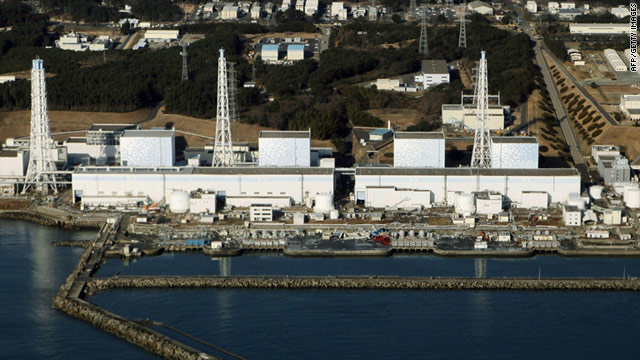Autumn II
Proud Member
http://enenews.com/1...t-expected-rise
100% chance of reactor core damage if floodwaters went above 1010 ft. at Ft. Calhoun nuke plant, NRC said in 2010 — River now around 1,007 ft. and expected to rise
June 27th, 2011 at 02:36 PM
original article: http://mrzine.monthl...baum270611.html
[...] During their routine inspections of weather protection readiness in 2010 [...] NRC estimated there was a 100% chance of reactor core damage caused by a flood rising above 1010 feet. The table at the top of Figure 1 provides the NRC’s assessment of the flooding risk while the table at the bottom provides the results from the risk assessment by Fort Calhoun Station (FCS). The company contested the NRC’s estimate. Its calculations showed that the chance of core meltdown was merely 19% for floods above 1010 feet and up to and including 1010.8 feet and only 23.9% for floods above 1010.8 feet to 1014 feet. [...]
UCS cannot say that these NRC actions already prevented an accident at Fort Calhoun or that they will prevent one should the flood waters continue to rise. However, the NRC did its job last year. The NRC’s inspectors found that Fort Calhoun was supposed to be protected against floods rising to 1014 feet, but was not. The NRC’s risk analysts determined that this deficiency was not academic — floods above 1010 feet had a 100 percent chance of core meltdown. And the NRC’s managers used the agency’s enforcement process to compel the plant’s owner to remedy the shortcomings rather than merely debate their risk.
100% chance of reactor core damage if floodwaters went above 1010 ft. at Ft. Calhoun nuke plant, NRC said in 2010 — River now around 1,007 ft. and expected to rise
June 27th, 2011 at 02:36 PM
original article: http://mrzine.monthl...baum270611.html
[...] During their routine inspections of weather protection readiness in 2010 [...] NRC estimated there was a 100% chance of reactor core damage caused by a flood rising above 1010 feet. The table at the top of Figure 1 provides the NRC’s assessment of the flooding risk while the table at the bottom provides the results from the risk assessment by Fort Calhoun Station (FCS). The company contested the NRC’s estimate. Its calculations showed that the chance of core meltdown was merely 19% for floods above 1010 feet and up to and including 1010.8 feet and only 23.9% for floods above 1010.8 feet to 1014 feet. [...]
UCS cannot say that these NRC actions already prevented an accident at Fort Calhoun or that they will prevent one should the flood waters continue to rise. However, the NRC did its job last year. The NRC’s inspectors found that Fort Calhoun was supposed to be protected against floods rising to 1014 feet, but was not. The NRC’s risk analysts determined that this deficiency was not academic — floods above 1010 feet had a 100 percent chance of core meltdown. And the NRC’s managers used the agency’s enforcement process to compel the plant’s owner to remedy the shortcomings rather than merely debate their risk.




